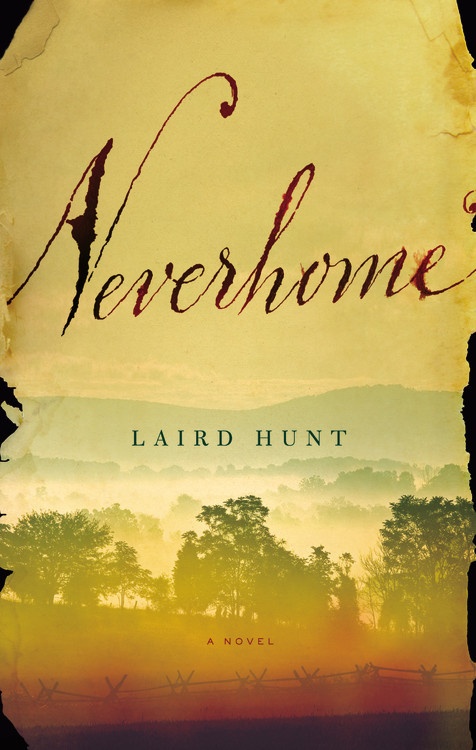Laird Hunt’s transfixing new novel “Neverhome” unspools in the voice of a Civil War soldier. It works upon the reader like a haunting. The narrator is Ash Thompson, a young woman passing as a man into the uniform of the Union.
The opening line: “I was strong and he was not so it was me went to war to defend the Republic.” Ash Thompson—born Constance—is telling us about her young husband Bartholomew and her strong desire to leave their Indiana farm to see the world: “I wanted to drink different waters, feel different heats. Stand with my comrades atop the ruin of old ideas. Walk forward with a thousand others. Plant my boot and steel my eye and not run. I said all of this to my dead mother, spoke it down through the dirt: there was a conflagration to come; I wanted to lend it my spark. We both of us, me and Bartholomew, knew what my mother would have said in response and it was like she was saying it each time I asked her what she thought.
“Go on. Go on and see what you got.”
So the reader and Ash are launched. Toward the end of the story, an educated woman in Springfield, Ohio takes in the remnants of this subterfuge and murmurs, “Penelope gone to the war and Odysseus staying home.” Ash can only reply, “Ma’am?”
Indeed, some dozens, perhaps hundreds, of American women chose to bind their breasts and fight instead of wait during the War Between the States. On the pages of “Neverhome,” they occasionally recognize each other. Hunt credits, “most crucially,” in his acknowledgements “An Uncommon Soldier: The Civil War Letters of Sarah Rosetta Wakeman, Alias Private Lyons Wakeman, 153rd Regiment, New York State Volunteers, 1862-1865” by Lauren Cook Burgess.
As erudite as Hunt is, and as careful his research, “Neverhome” casts the powerful spell of fiction, hurtling its reader into “the stripped and battle-burned land” as lyrically as the best war novels. Hunt, 46, a University of Denver professor in Boulder, Col., won an Anisfield-Wolf Book Award last year for “Kind One,” a slavery-shadowed story anchored on a Kentucky pig farm. (He will return to Northeast Ohio to speak about “Neverhome” at 7 p.m., Tuesday, September 23 to the Beachwood branch of the Cuyahoga County Public Library.)
Hunt has a gift for rural voices and rural ways, and for teleporting us into the mid-19th century American landscape. The thrill of “Neverhome” is akin to the one Robert Olmstead delivered in “Coal Black Horse,” and, like Olmstead’s, the cadences of Ash Thompson can be almost Biblical:
“Nor did I, nor any of those around me I am proud to say, slow down when the cannon fire grew so hot it seemed like the injury was already being done to us before we had fairly arrived and that we were already part of the world’s everlasting grief and glory, and we could see the trees crashing down destroyed in the heights and hear the sound, from all quarters, of hurt men letting the air out of their throats.”
The reader, mesmerized, swallows whole that singular beautiful sentence. There are many others. The vocabulary in “Neverhome” is perfect – plain and strange and tuned as true as a pitch fork. Hunt is a student of stories and story-telling, and he mixes fable and song into “Neverhome,” even more than he did in “Kind One.”
And though “Neverhome” is not about slavery, the peculiar institution casts its evil pall here. Ash comes upon bloody shackles in an abandoned shack, and later a dilapidated gallows near “a old slave-selling emporium.” Cross-dressing affords Ash some life-saving trickery, and it provides Hunt some plot twists that feel proto-contemporary. Hunt is interested in the human mysteries – one being sex. Another is aggression, and the damage the aggressor does to self in the pursuit of another’s blood and pain.
So Hunt, like Homer, sets his protagonist on a road to war. She, like the Greek king, is cunning. She, like he, is captured. Song is made of their stories and so is woe. Eventually, Odysseus returns after long years to Ithaca.
In this spare, splendid novel, readers will burn to know if Ash Thompson can find her way home.


